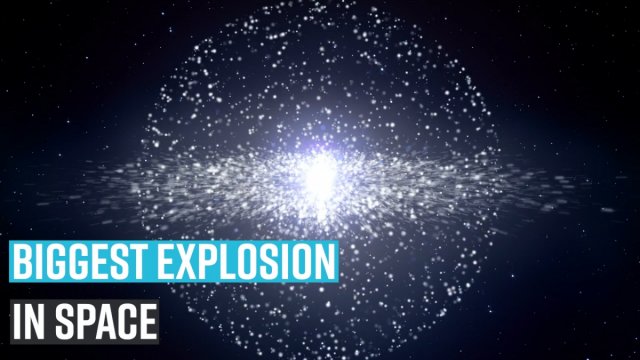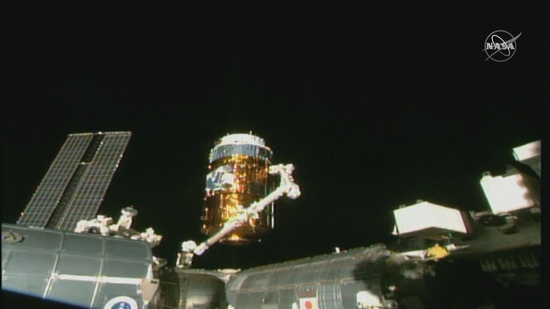

An astronomer has spotted a Japanese spacecraft during its resupply mission to the International Space Station (ISS) from Earth. In the short video captured by the astronomer, the spacecraft produced a bright flash as it traveled across space.
The spacecraft is officially known as the H-II Transfer Vehicle (HTV). It was developed by the Japan Aerospace Exploration Agency (JAXA) to deliver supplies to the ISS.

The HTV9 Mission
The HTV was recently launched by NASA on May 21 for its ninth space mission. Dubbed as HTV9, the objective of the mission is to deliver 13,600 pounds of cargo to the ISS. This includes supplies, experiments and other pieces of equipment needed by the astronauts.
JAXA's spacecraft was captured by ISS' robotic arm on May 25. Its payload was fully unloaded the following day.
Spotting The HTV From Earth
As the HTV made its way towards the ISS, an astronomer from the Netherlands was able to observe it using his telescope. According to Ralf Vandebergh, he saw the spacecraft as it passed over the country on May 24. In the short video he shared via Twitter, the spacecraft can be seen producing a bright flash. Although the flash might seem like the result of an explosion, Vandebergh noted that it was caused by the reflection of sunlight from the spacecraft's body.
"I used my 10-inch telescope to record this bright flare coming off the HTV9 on its way to the International Space Station," he stated according to SpaceWeather.com. "Sunlight briefly glinted from the HTV9's elongated body, creating an outburst of light."
Telescopic recording of a flare coming off the elongated shaped #HTV9 cargoship on its way to the #ISS. Taken during a pass on May 24 with a 10 inch telescope. Still image: https://t.co/MBebqOriTW @Tungsten_Flight @NASA_Astronauts @Space_Station @NASA_Johnson @JAXA_en @JAXA_jp pic.twitter.com/wuxOhx5Biu
— Ralf Vandebergh (@ralfvandebergh) May 25, 2020
HTV's Final Mission
HTV9 is the final mission for JAXA's robotic spacecraft. It will be replaced by an updated cargo vehicle known as the HTV-X. Unlike its predecessor, the HTV-X no longer needs to be captured by the ISS' robotic arm. Instead, it can directly dock with the station just like SpaceX's Dragon and Boeing's Starliner capsules. For the HTV's final mission, NASA astronaut Chris Cassidy, the current commander of the ISS' Expedition 63 crew, operated the robotic arm to capture the spacecraft.
"It was an honor for Expedition 63 to be part of the final HTV mission, a vehicle that has contributed so greatly to the International Space Station program," he said, according to Spaceflight Now. Congratulations to our friends and colleagues in Tsukuba."









